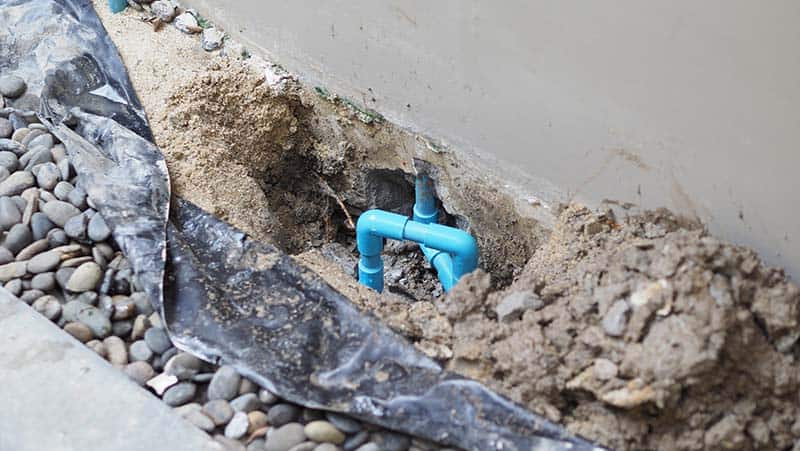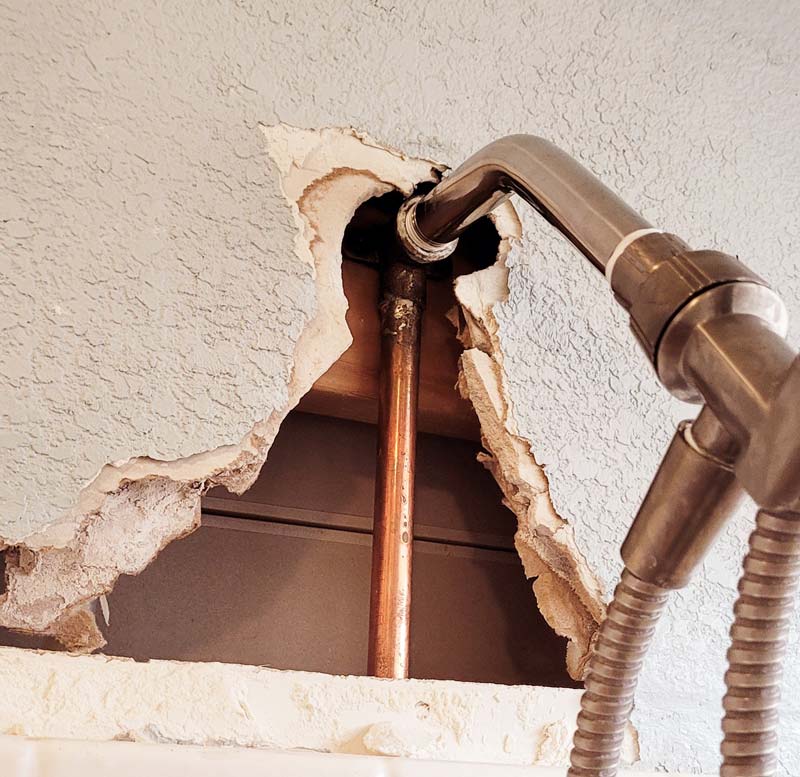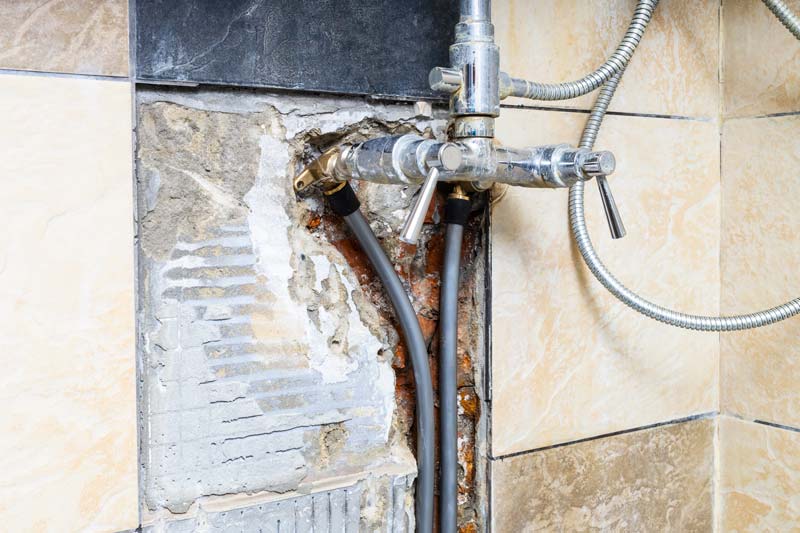How to Detect Water Leaks

Water leaks can be silent destroyers, causing extensive damage to your property while remaining hidden from plain sight. Understanding how to detect water leaks early can save you thousands of dollars in repairs and prevent potentially hazardous living conditions.
At Quality Plumbing, we’ve seen firsthand how undetected leaks can transform from minor issues into major catastrophes, which is why we’re sharing our expert knowledge on leak detection.
The Importance of Early Detection
Early detection of water leaks is crucial for maintaining both the structural integrity of your property and your financial well-being. Even a small leak can waste hundreds of gallons of water annually, leading to significantly higher utility bills. More importantly, persistent leaks can compromise your building’s foundation, promote mold growth, and create unsafe living conditions.
How to Detect Water Leaks: Common Signs
Visual Indicators
The first line of defense in detecting water leaks is knowing what to look for. Water stains on walls or ceilings are obvious red flags that shouldn’t be ignored. These stains often appear as discolored patches with irregular shapes and may grow larger over time.
Peeling paint or wallpaper, especially in bathrooms or kitchens, can indicate hidden water damage. Additionally, warped or buckling flooring, particularly on wooden surfaces, suggests water accumulation beneath.
Auditory Signal
Your ears can be valuable tools in detecting water leaks. Pay attention to unusual sounds like dripping or running water when no fixtures are in use. Sometimes, pipes may make strange gurgling or whistling noises, which could indicate pressure problems or blockages leading to leaks.
[Related: Common Problems in Plumbing]
Environmental Changes
The environment in your home can provide crucial clues about potential water leaks. Musty odors often indicate mold growth or mildew, which thrive in humid conditions created by leaks.
Unexplained increases in humidity levels, especially in basements or crawl spaces, should raise concerns. Outside, unusually lush or green patches in your lawn might suggest an underground water line leak.
Regular Meter Readings
One of the most reliable ways to detect water leaks is through regular monitoring of your water meter. Here’s how to conduct a simple meter test:
- Turn off all water-using appliances and fixtures
- Record your meter reading
- Wait 2-3 hours without using any water
- Check the meter again
If the reading has changed despite no water usage, you are most likely dealing with a leak.
How to Prevent Water Leaks

Regular maintenance is key to preventing water leaks. Schedule seasonal inspections of your plumbing system, paying special attention to areas prone to leaks, such as:
- Under sinks and around toilets
- Near water heaters and washing machines
- Around outdoor spigots and irrigation systems
- Basement walls and foundations
By taking proactive steps to prevent water leaks, homeowners can avoid costly repairs and gain the peace of mind that comes from knowing your plumbing system is well-maintained and regularly inspected by professionals. Preventative measures not only safeguard your property but also extend the lifespan of your plumbing system.
[Related: DIY Plumbing: Do’s and Don’ts]
How to Detect Water Leaks: When to Call the Professionals

Don’t wait until a small leak becomes a major problem. What might seem like a minor issue today could escalate into costly damage tomorrow, potentially affecting your home’s structural integrity and your family’s health. Contact a professional plumbing company, like Quality Plumbing, immediately if you:
- Notice any signs of water damage, including discolored walls, ceilings, or floors, as these indicators often suggest more extensive hidden damage
- Experience unexplained increases in water bills particularly jumps of 20% or more above your normal usage patterns
- Hear unusual plumbing sounds such as whistling, gurgling, or banging in your pipes, which often indicate developing problems
- Want to schedule a preventive inspection to catch potential issues before they become emergencies
- Detect musty odors or observe increased humidity levels in your home
- See water meter movement when all fixtures are turned off
- Notice decreased water pressure or inconsistent water flow
Remember, when it comes to detecting water leaks, early intervention is key. Trust Quality Plumbing to provide the professional expertise and personalized service you deserve. Contact us today for expert plumbing services.

